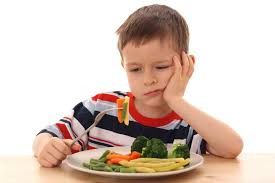
The start of a New Year marks the tendency to plan a never ending list of resolutions for the coming year. Eating healthy, exercising more, losing weight, or doing things to make us feel better overall are just a few common ones many of us tend to list. It is very easy to write down these actions we plan and maybe stick to them for a week or two but then excuses kick in and many tend to resort to the usual habits.
“Eating healthy is impossible.” We have all thought this at some point in our life. We have all said it. And probably many of us believe it to the extent that we won’t even try. Such statements and beliefs are even more common when it comes to offering healthy food to children. It is very common to hear parents, grandparents and even relatives remark on how difficult it is to feed fruit and vegetables to children. It is easy to please children and always offer the foods they prefer, however, do you know that the habits your kids are forming now will affect their health later in life?
Thomas McInerny, MD FAAP, past president of the American Academy of Pediatrics (AAP) stated “Not only is it extremely important for kids to get all the vitamins, nutrients and physical activity they need to stay healthy, but habits formed early in life — both good and bad — can last a lifetime”. Bad eating habits can have unhealthy consequences, such as being overweight or obese which currently affects 40% of school-aged children in Malta as has been shown in a recent study led by Prof V Grech1. Children who are obese are more likely to become obese adults, increasing the risk for certain health problems such as type 2 diabetes, heart disease and cancer.
Your child can learn healthy habits early in life offering lifetime benefits. It starts at home with you. Children see, hear and try to copy everything you do. They are constantly learning by watching you. For the coming year try not to focus on drastic changes but rather be a positive role model and enforce the message that good health is important by actively trying to live a healthy lifestyle implementing small sustainable changes one by one.
The health promotion and disease prevention directorate recommends 6 ways to a healthy lifestyle to help your kids establish healthy habits. Make these part of your family’s daily routine:

- Eat more fruit and vegetables: Eat plenty of fruits, vegetables and whole grains in reasonable portions. This is even possible with ‘picky eaters’.
- Eat fewer snacks and select healthier options: Eat breakfast, lunch and dinner with two snacks in between. Opt for fruit/vegetable based snacks rather than sugar and fat loaded snacks such as crisps or biscuits.
- Turn off TV and computer and get active: Limit the amount of time your child spends in front of a screen to no more than 1-2 hours daily. These habits can increase the risk for obesity.
- Chose water as a drink: Encourage drinking water and skip the soft drinks- these are full of sugar and offer no nutritional value.
- Get active each day: Encourage daily physical activity and make it fun. Try different activities until your child finds something they enjoy (e.g. football, karate, swimming, gymnastics, dance, etc.). During the weekends get moving as a family by going for walks, biking or playing together.
- Have adequate rest and sleep: Quality sleep will help your child stay healthy. You can help your child develop good sleep habits by creating a regular sleep routine, including a regular bedtime. Keep the TV out of your child’s bedroom and do not allow watching TV close to bedtime. Primary school aged children need an average of 8-9 hours sleep per day.
As the New Year begins, work on creating healthy habits for your family that will last a lifetime. Remember small but constant changes are more sustainable than drastic changes that will only last a short while! Children follow their parents thus you are their role model. Take Care of Your Health and Guide responsibly!
References
- Grech V, Aquilina S, Camilleri E, Spiteri K, Busuttil M, Sant’Angelo V F, Calleja N. The Malta Childhood National Body Mass Index Study: A population study. Journal of Pediatric Gastroenterology and Nutrition. 65(3):327-331, September 2017.
Recommended Reading
Healthy New Year’s Resolutions Ideas for Kids
